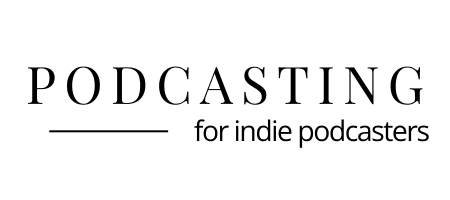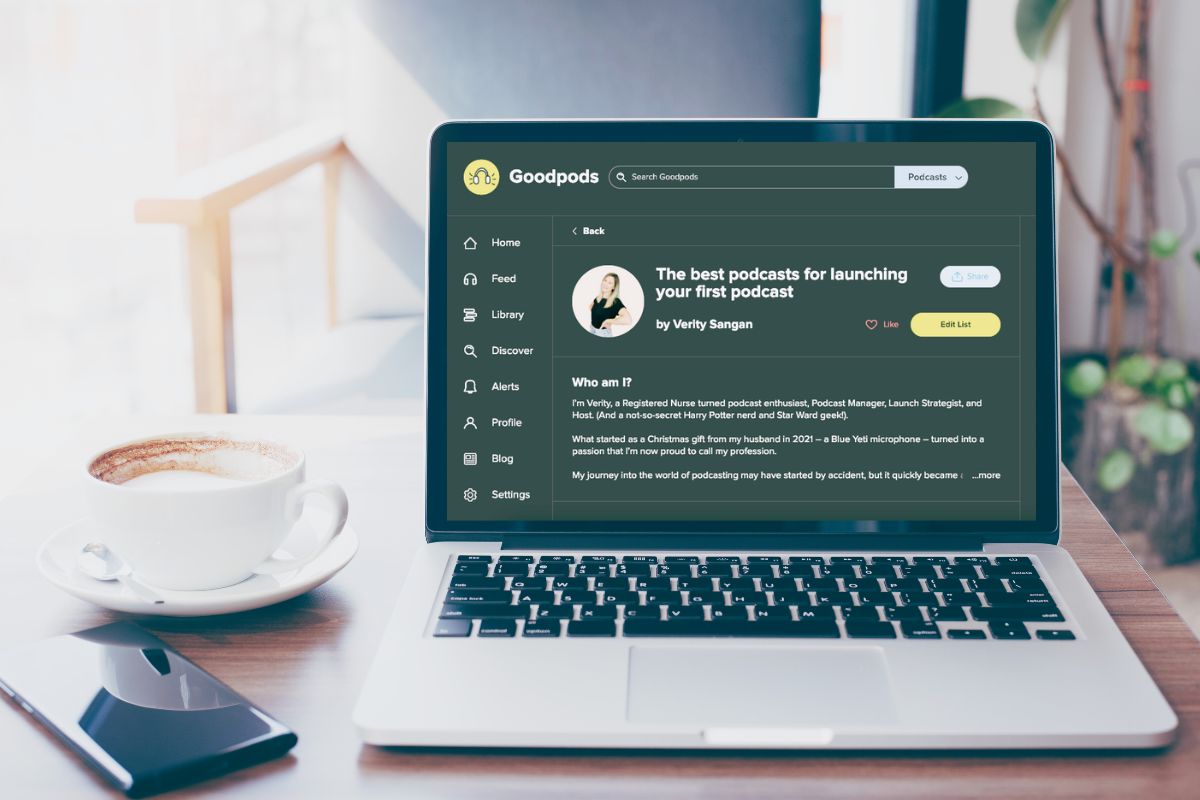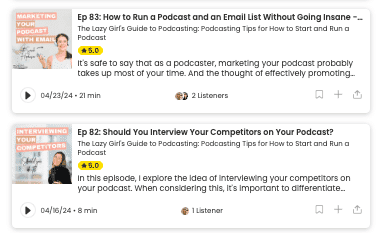
Should I Quit My Podcast? (And How to Quit Gracefully)
I’ll address the elephant in the room right away. For someone who teaches others how to create, launch and run a podcast and provides services in podcast launches, it might seem a bit odd talking about quitting on your podcast. But, I like to bring the conversation to the less-talked-about topics of podcasting, as well as the more mainstream how-to’s.
So, it only seems right to talk about when you’re starting to get that niggling feeling that you should quit your podcast.
The feeling of failure
The first thing that I want to address is any feelings of failure you might feel after you type something into Google about quitting your podcast and landing on this blog post.
Heck, you planned, launched, ran, hosted, promoted, produced, and all the other things needed for your podcast.
THAT’S HUGE!!
And you need to give yourself credit for everything that you achieved in your podcast journey and the skills you learned along the way.
Next, I want you to consider WHY you want to quit your podcast. But before we dive deeper into that point, let’s consider some key points about quitting your podcast.
Quick-fire questions about quitting your podcast
Why do people quit podcasting?
One of the main reasons why people quit podcasting is because they don’t see the success that they wanted, as quickly as they thought that they would.
When should you quit your podcast?
The short answer is that you should quit when you’re no longer passionate about the content that you’re producing.
If you’ve lost your passion for your content, then your episodes will end up being mediocre at best. Think about the podcasts you’ve listened to in the past. It’s obvious when a host is passionate about what they’re talking about and when they’re producing content for the sake of it.
How many people quit podcasting?
On average, most people will quit their podcast before episode 8. So if you’ve made it past 8 episodes, well done, you’ve beaten the odds!
To put that into even more context, it’s estimated that around 44% of podcasts have 3 or fewer episodes.
There is a whole range of reasons for this, including not seeing immediate success, overwhelm by the amount of work involved in podcasting, or just not having a solid strategy in place to take the podcast forward.
What is the average life of a podcast?
According to some digging that I did on the internet, the average podcast lasts for around 174 days (approximately 6 months). So, if you’ve made it to the 6-month mark, congratulations. Your podcast has reached an average lifespan.
Not bad, right?
6 signs that it’s time to quit your podcast
1. You’re no longer passionate about the topic
If you’re turning up to record each episode and it feels more like a chore than a joy, then your passion for your project might have disappeared.
Or maybe you aren’t even getting as far as recording an episode because you’re stuck at the episode topic phase and cannot fathom what on earth you should talk about in your next episode.
Maybe because of this, you’re either having massive gaps between episodes and are producing inconsistent content, or you’re just rehashing what everyone else in your niche is talking about because you’re struggling with coming up with an original topic or an original angle.
Either way, if you’re no longer feeling passionate about your podcast’s topic, this is a surefire sign that it might be time to move on.
Life is short and you’ve got to enjoy what you’re podcasting about.
2. You’ve run out of (quality) content
The word ‘quality’ is intentionally bracketed in this heading. This is because running out of content and running out of quality content are two different things.
Let me explain:
Running out of content
Running out of content might happen when your show has a designated run. Let’s say that you’re podcast is covering a court trial or a tv series. Both of these examples have defined finishing dates. And when there is no more content from either the court trial or the tv series, you’re left without content to use for your podcast.
Don’t get me wrong, there are a lot of ways you can generate content until the next tv series comes out if you want to, but we aren’t talking about taking breaks from your podcast. We’re talking about when your content has actually stopped coming.
As of June 2023, I’m currently listening to the podcast: The Trial of Lucy Letby. The podcast is following the courtroom events. However, once the verdict is given, there will probably be little else to add to the series and so I can see the podcast ending after this.
Similarly, is the Obsessed With…podcast. This podcast runs a season per tv show that the hosts want to discuss. For example, in one season, the podcast ran for the duration of the final season of Line of Duty so that the presenter could analyse each episode in our lead-up to finding out who ‘H’ was. Once Line of Duty concluded and ‘H’ was revealed, the podcast no longer had fresh content and so ended their series. If they hadn’t had the idea to review another show for their next series, the podcast likely would have ended there.
Running out of quality content
You might, however, podcast about a topic where there is continual content. However, after a while, you feel that you have gone through all of the ‘juicy’ content and are now producing mediocre content for the sake of filling up your publishing schedule.
When you get to this stage of having no quality content left, it might be best to leave your podcast lie. After all, quality over quantity will always win in the online content wars.
Related Post >> 7 Signs You’re Taking Your Podcast Too Seriously (and How To Fix It)
3. You don’t enjoy your podcast anymore
I think this is one of the fairest reasons out there for quitting your podcast.
You have to enjoy the content that you’re creating and producing. And if that passion has now gone, then there is nothing wrong with admitting this and moving on to a different podcast or leaving podcasting altogether.
Podcasting is a labour of love for most podcasters. And when download numbers aren’t as high as the often compared to views of YouTube, then it can be even harder to enjoy a process that you feel is giving you so little return for your time and effort.
Whilst I would always encourage you to look at the community you’re building rather than just raw numbers of downloads and listeners, if you’re really not enjoying your podcasting journey anymore then it’s ok to admit that it’s not for you and to move on.
4. Your podcast doesn’t fit your life anymore
Life changes. It’s a fact, and sometimes you have no control over the changes around you.
But, because of life changes, sometimes your podcast just doesn’t fit in anymore.
Perhaps you get a promotion and need to work more hours, maybe you experience an illness in the family and need to spend more time with your loved ones. You might take up a new hobby that demands more of your time. Or perhaps family life is taking over.
Whatever the reason, your podcast might not fit in with your life anymore and the time needed for your podcast might no longer be as available anymore.
Equally, if your podcast was about a particular event in your life, or hobby that you were doing that has now passed, you might no longer want to talk about those topics anymore.
5. You feel overwhelmed by everything
Podcasting can be time-consuming. There are no two ways about it.
And it doesn’t matter how much you outsource or pass over to AI, fundamentally, there is still time required to come up with the concept and script for each episode, record, and produce it.
If you’re starting to feel significantly overwhelmed by everything, then it could be a sign that you either need to simplify your processes or time to take a break from podcasting.
6. Your gut is telling you to move on
Sometimes there’s no rhyme or reason to it, you just get that gut feeling that your podcasting project is done with and you need to move on.
And that’s fine.
If your gut is telling you that it’s time to move on from your podcast then lean into that thought process. Consider why you’re having these thoughts, but ultimately, if it feels right to stop your podcast then I always believe in listening to what your intuition is trying to tell you.
How to decide if you should quit your podcast
Before we jump into how to successfully quit your podcast, here are two key questions that you should ask yourself before you decide if you should quit your podcast or not.
Have you lost your direction/original focus?
So many podcasts fail and get given up on because there’s no direction or overall focus for the show.
If this is you, check out our blog post: What Should My Podcast Be About? >>
Do you just need to take a break?
Depending on your content creation schedule and what’s going on in your life, you might just need to take a break.
Consider taking a season break and taking the time to evaluate if you want to return to your podcast during that break. You might refind your passion when you’re not chained to your content schedule for a while!
If this is you, check out our blog post: What’s The Perfect Length for Your Podcast Season? >>

How to successfully quit your podcast
When quitting your podcast, if you can avoid it I wouldn’t suggest just abruptly stopping.
Doing this can make your audience feel a little cheated and confused.
This certainly happened to me last year. I had been listening to a weekly podcast for months and months (in fact, I’d binged the entire catalogue and then was listening to the weekly episodes as they came out).
And then the content just stopped.
There was no reason for this abrupt ending and it felt a little odd.
After 2 months or so, an episode was randomly published. Followed by more silence.
That podcast now hasn’t put out a new episode in over a year.
I checked the host’s socials and they’re continuing to produce content (I had been worried they’d been ill or something!), but it was clear that they had just wanted to move on to the next project.
And that’s fine, but as a listener who had devoted so much of my time to their content, I don’t feel a bit cheated.
Creating an exit episode
Based on this, my advice would be to have some sort of exit episode.
It doesn’t have to be long or particularly definitive either.
If you’ve decided that you’re definitely quitting your podcast, then you can have a short episode where you thank listeners for their support during the lifetime of your show but that you will no longer be creating new content (you don’t have to give a reason if you don’t want to!).
Equally, you could explain that you’re taking a break and are unsure at this point if/when you’ll be returning with new content for the show. Again, you don’t need to give a reason.
But by creating an exit episode, you’re not leaving your audience in the lurch and wondering if they’d missed something, or leave them feeling undervalued at your sudden shock exit.
Once you’ve decided to quit your podcast, you can choose to keep your listings active. For example, if you’re with Buzzsprout, they allow you to keep your listings active for just $5 per month rather than paying for a full subscription each month. Equally, you might decide to have a date that you remove all traces of your podcast from directories.
The choice is yours.
What to do after you’ve quit your podcast
Once you’ve quit your podcast, you might be feeling a range of emotions.
You might feel happy that you’ve gained more time for other projects. You might feel sad at the close of this chapter. You might feel invigorated to apply what you learned with your podcast and start another. You might feel like you’ve let down your audience and community.
However, you feel; it’s ok.
There’s no right or wrong way to feel.
Grab a cuppa and your journal, acknowledge your thoughts and give them some space.
Once you’ve decided to quit your podcast, here are some things that you might want to consider:
- Starting another podcast! Just because your first podcast didn’t pan out how you wanted it to, there’s no reason why you can’t have another go with a new pod.
- If you still want to create online content, check out other platforms such as YouTube.
- Take a break and explore other hobbies that you can now spend your time on. Or, if your podcast was business related, consider how you can build your authority and brand awareness in other ways outside of podcasting.






